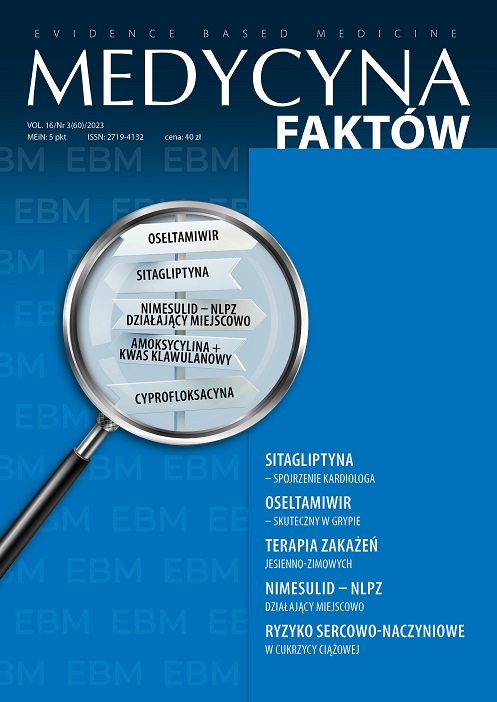When I choose sertraline? Patient profile Case report
Main Article Content
Abstract
In this short educational material, our main character will be sertraline, a drug that has been known for decades and, although still eagerly used in clinical practice, is underestimated in many respects. When looking for new therapeutic solutions, we sometimes forget that the long presence of a drug on the market is its greatest advantage. The multitude of clinical experiences related to the use of sertraline in various situations, combined with excellent knowledge of its safety profile and possible side effects, allows us to fully conscious and safe use of the drug and to select an adequate dose to the profile of our patient’s symptoms. In the article, we present 3 clinical profiles of patients treated with sertraline, showing both the therapeutic potential of the drug as well as its strengths and weaknesses. Sertraline is one of the best-studied and safest antidepressants. Therefore, there are a number of situations in which it will be the antidepressant of first choice or a drug used as part of a change in pharmacotherapy due to the deterioration of the patient’s somatic condition and the exacerbation of comorbidities.
Article Details
Copyright © by Medical Education. All rights reserved.
References
2. Jiang W, Kuchibhatla M, Cuffe MS et al. Prognostic value of anxiety and depression in patients with chronic heart failure. Circulation. 2004; 110: 3452-6.
3. Jiang W, Alexander J, Christopher E et al. Relationship of depression to increased risk of mortality and rehospitalization in patients with congestive heart failure. Arch Intern Med. 2001; 161: 1849-56.
4. Rachdi C, Damak R, Fekih Romdhane F et al. Impact of sertraline on weight, waist circumference and glycemic control: A prospective clinical trial on depressive diabetic type 2 patients. Prim Care Diabetes. 2019; 13(1): 57-62.
5. Lustman PJ, Clouse RE, Nix BD et al. Sertraline for prevention of depression recurrence in diabetes mellitus: a randomized, double-blind, placebo- controlled trial. Arch Gen Psychiatry. 2006; 63(5): 521-9.
6. Remberk B, Antosik-Wójcińska AZ, Baron M. Rekomendacje dotyczące postępowania w zakresie zapobiegania, wykrywania i leczenia depresji u dzieci i młodzieży. In: Rekomendacje postępowania w zakresie zapobiegania, wykrywania i leczenia depresji / Instytut Psychiatrii i Neurologii w Warszawie. Ministerstwo Zdrowia, Warszawa 2018: 36-94.
7. World Health Organization.

